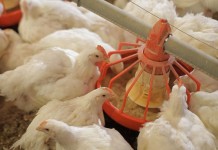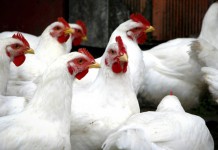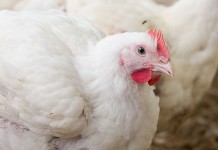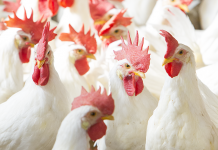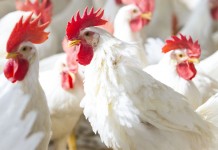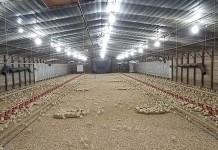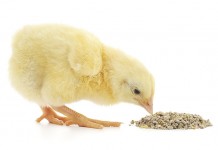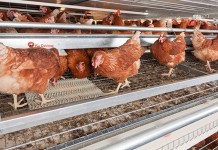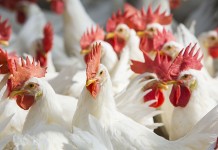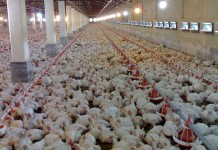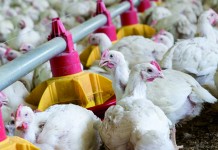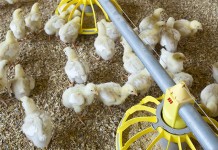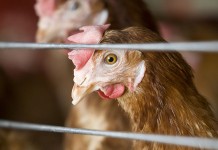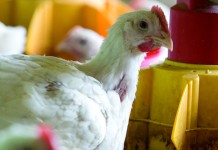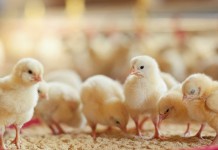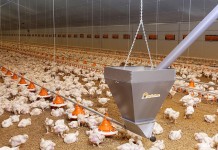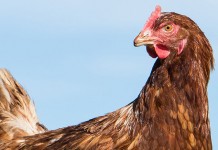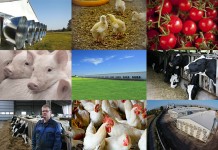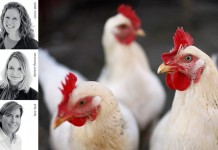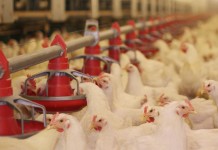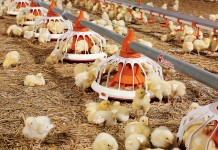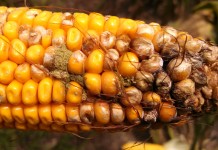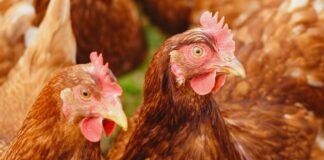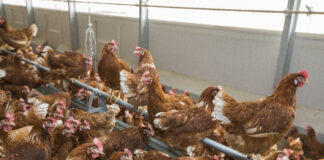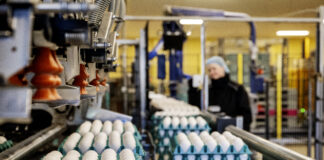Field experience on the use of probiotics in chickens and turkeys
Probiotics have been used for several years in an attempt to improve intestinal health. Recently, microbial products have been extensively studied as supportive treatments...
On free amino acids – Their role in starch and protein digestive dynamics
The quantity of glucose and amino acids absorbed from the small intestine is a function of dietary concentrations, feed intakes and digestibility coefficients. Moreover,...
Immediate post-hatch nutritional restriction in broilers
The effect on broiler muscle development and occurence of intramuscular fat.
Neonatal nutrition and immediate post hatch nutritional restriction represent an important facet of broiler...
Probiotics as an alternative to antibiotics for treating lameness in broilers
The pathogenesis leading to a form of lameness known as bacterial chondronecrosis with osteomyelitis (BCO) appears to be initiated by mechanical microfracturing of susceptible...
High levels of cottonseed meal supplemented with composite microbial enzymes
Effects of cottonseed meal supplemented with composite microbial enzymes on broiler chickens.
Soybean meal (SBM) is the premier plant protein source used by the poultry...
Scientifically validated results to raise poultry production profitability
The Poultry Science Association 2017 Annual Meeting took place in Orlando, Florida on July 17-20. Being the most prestigious scientific event for poultry in...
Measurement of true ileal calcium digestibility of meat and bone meal for broiler chickens
Currently, there is a move towards the use of digestible phosphorus (P) in diet formulations for poultry due to P excretion into the environment...
How Xylanase can improve performance of a broiler diet
Whilst xylanase rich NSP-enzymes are used consistently in wheat based diets the question remains whether the positive response seen can be ascribed solely to...
Laying hen nutrition for optimizing egg production and quality
Hen nutrition is important; during the initial period of pullet rearing (<45 days of age), small particle size obtained by grinding of main cereals...
Evaluating phosphorous equivalency of phytases
The use of exogenous enzymes in non-ruminant nutrition is a valuable tool to increase digestibility and therefore spare the inclusion of expensive nutrients whilst...
Measurement of energy utilization in chickens
Although corn prices have dropped from historic highs in the past years, energy continues to be one of the driving costs in poultry feeding....
Using more bioavailable sources of trace minerals pays off
A study of broiler breeder performance was conducted using three separate minerals programmes. The objective was to determine if productivity could be maintained at...
Influence of feed form and particle size on the performance and nutrient utilisation of...
The present experiment was designed to examine the influence of feed form and particle size in maize-based diets on the performance and nutrient utilisation...
In vivo digestion of GM proteins in laying hens
Despite all of the positive effects of modern technologies to improve corn and soybean yields, the consumer often has a different perception of the...
Phosphorus: how low can we go in broiler diets?
Phosphorus (P) is essential for all forms of life. Dietary P content either in excess of, or below requirements may adversely affect broiler performance....
The effect of microbial challenge on the intestinal proteome of broilers
In broiler production intestinal health and function is paramount to achieving efficient feed utilisation and growth.
Uncovering the localised molecular mechanisms that occur during the...
Bacillus Subtilis improves performance of broilers fed medicated or non-medicated feed
Animal digestive health is key to obtain optimal performance. Antibiotic growth promoters (AGPs) have long been shown to be very effective to develop and...
Feather-eating hens show specific essential amino acid appetites in a double-choice model
Nutritional balance is one of the major considerations to prevent severe feather pecking in layer hens. Individual variation in digestive and metabolic efficiencies and...
Feed Conversion Ratio optimized for farmer profit
The farmers’ cost for animal feed is one of the main expenditures consisting of 60-70% of the overall producer costs. These producer costs are...
New applications such as superdosing of phytase to maximize phytate destruction to improve performance...
It is well documented that phytase supplementation in broiler diets improves P and Ca utilization through the destruction of phytate (IP6) and thereby allows...
The relationship between feed particle size, gizzard development and broiler performance
Anatomy of the stomach
The stomach of the chicken consists of two chambers, the proventriculus or glandular stomach and the gizzard or muscular stomach.
The proventriculus...
Flexible Feed Formulation with GALLIPRO
Facing challenging goals
The goal of the poultry industry is to provide consumers with safe food, while promoting poultry health and welfare, in addition to carefully...
Feed borne mycotoxins: the threat to poultry?
Mycotoxins are metabolites produced by molds (fungi) that can infest crops pre-harvest and can continue to flourish under sub-optimal storage conditions. Grains with high...


